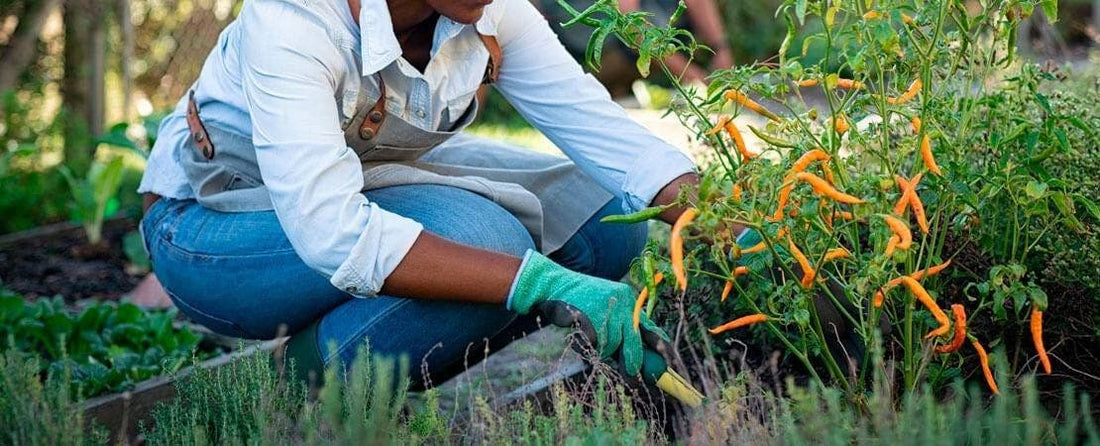
Gardening for Your Health
Share
How Growing Improve Body & Mind
There’s an old saying that gardening is good for the soul, but did you know it has a profound effect on the body as well? These effects are generally positive, though physical labor can always have its drawbacks. Today we’ll explore how to maximize the health benefits of tending your land while minimizing common stressors that crop up so that you can enjoy your garden to the fullest.
Health Benefits of Gardening
In today’s modern world it’s more important than ever to make time for our health. Study after study has shown us how detrimental sedentary life can be. One of the greatest benefits of working in the garden is that it keeps you active. People who garden often will experience:
- Better heart health & improved circulation – The garden is an all-access gym minus the membership fees. Even the simplest maintenance tasks can help get your blood flowing and reduce your risk for heart disease.
- Ample vitamin D – Sunlight isn’t just for your daisies! It’s an important vitamin that we can’t get enough of while just sitting inside.
- Increased hand strength and dexterity – Whether pulling weeds, sawing, raking or planting your hands get quite the work out and this keeps them limber and strong.
- Improved mood and enhanced confidence – The pride of growing something from seed to flower/fruit is a delicious feeling indeed.
- Stress relief – it’s hard to sweat the small stuff when you’re busy literally sweating over weeds.
- Healthier diet – When you grow your own food you know exactly what went into it – no harmful chemicals or preservatives, just fresh and delicious produce.
- Reduced risk of Alzheimer’s and Dementia – Studies show that working in the garden has remarkable effects on the brain and helps greatly reduce the risk for degenerative diseases.
- Sense of community – once you begin your gardening journey you will meet many others whether online or in your own neighborhood that have a passion for growing things and through your shared experiences you not only learn more, you become more established in society and gain friends. Humans are social animals and having a clique is a great way to reduce stress and feel purposeful.
Common Gardening Challenges and How to Overcome Them
-
Gardening and Joint Pain Relief
Knee and back strain can be reduced with raised beds, ergonomic tools, and gardening stools to minimize bending and kneeling. -
Sun Safety in the Garden
Avoid sunburn with wide-brimmed hats, high SPF sunscreen, and strategic shade from plants like arborvitae or garden structures. -
Bug and Bee Safety for Gardeners
Repel pests naturally with insect-repelling plants, encourage predator species like dragonflies, and wear light-colored clothing around bees to prevent stings. -
Avoiding Gardening Disappointment
Reduce plant loss by choosing crops suited to your USDA growing zone, testing soil quality, and learning from local gardeners’ experiences.
Grow plants that do well in your zone, test your soil quality and always get the facts (from multiple sources for good measure) about certain plants before you invest in them. Talk to your neighbors and ask them what didn’t do well in their yard so that you know what works and what doesn’t.
Environmental Benefits of Gardening
When you grow your own food and plants, you:
- Reduce air pollutants
- Enrich soil health
- Support local wildlife like bees and butterflies
- Lower your carbon footprint
When you garden you don’t just benefit yourself – you save the world. Simply by growing your own food and tending your greenery you are helping reduce air pollutants, enriching the soil, bolstering your local wildlife populations (to bees and Monarch butterflies you are a hero!), and reducing your overall carbon footprint.
To all gardeners, we thank you!